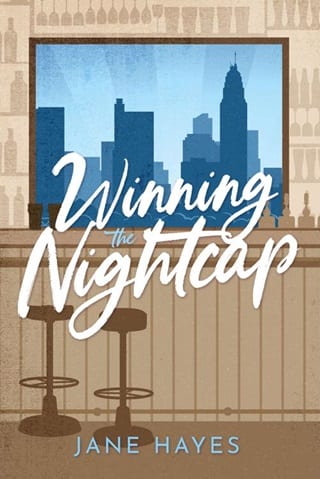Chapter 23
Dear Anne,
I just received word from Mr. Cox, who remained behind at the legation in Oslo, that all members of the American diplomatic staff must leave the city by order of the German authorities. He's assured me that all my personal effects have been boxed for shipment back to the United States, though when I shall see them is anyone's guess. You'd laugh at an old woman's sentimentality, but I was more concerned about Kim's well-being and was crushed to hear of his passing. It was gentle and hardly a surprise. He'd lived to the fine old age of eleven, but it hurts to think of living at Uplands without him. Wherever there is a dog's heaven, there he surely is...
D id it mean anything that their meeting took place in the formal confines of the royal palace rather than the relaxed atmosphere of Prince Carl's country house? Daisy chose to dismiss her qualms as unnecessary. She'd never been intimidated by pomp. She took people as they came, prince or pauper, and she'd fraternized with enough of both over the course of her varied career to know which she preferred.
She had arrived directly from the American legation, where Freddie Sterling had been pressing her for news of the princess's intentions. News she couldn't give him. It had been nearly two weeks since she'd presented the invitation from Roosevelt. Two weeks in which battle lines had shifted like the inrush of a tide; Russian armies washing over Lithuania, Latvia, Estonia, Romania; fleets of German bombers softening the British defenses for what everyone assumed would be certain invasion. Two weeks in which the grip on Norway had tightened to a fist; armies disbanded, equipment destroyed, dwindling hope lying in the pockets of a scattered resistance; deadly burrs to goad and harry the German forces until such time as their king might return.
Two weeks in which Daisy had waited for an answer.
Sources had informed her that King Gustav was advocating for his niece to reject the invitation and had gone so far as suggesting that Prince Olav persuade the princess to remain in Sweden. Daisy wouldn't speculate on his reasoning for such a proposal, but she had her ideas. None of them painted the Swedish king in a favorable light.
Upon arrival at the palace, Daisy had been shown to a small antechamber off one of the larger reception rooms, the air there chilly and stale despite the summer heat outside. Dust glittered in the sunlight from the tall windows overlooking the inner courtyard. Crown Princess M?rtha was dressed soberly today: gray silk, a set of simple pearls. Her face shone pale in the light, arched brows over a long slender nose and high cheekbones. A jaw deceptively firm.
Her escort had departed almost immediately, though Daisy imagined he was close by. Listening at the keyhole perhaps.
Daisy cleared her throat, casting a glance at the closed door. Her Royal Highness didn't reply, but there was understanding in her eyes. They might be alone, but whatever was said in this room wouldn't stay a secret for long. "I hear Mr. Schoenfeld at the Brit ish embassy has been tasked as the US chargé d'affaires for the Norwegian government in London," Her Royal Highness said.
As an opening gambit, it was good. Proof that despite being hidden away, she was very much paying attention. And not a single reference to a hat.
Daisy ignored the ache in the small of her back and settled down to business. "It makes sense. He's there and we... that is, I... am here."
"Yes," the crown princess replied, tension in her crossed arms and the height of her shoulders. "But it doesn't make it any easier to accept being left behind, does it?"
Her stare was direct, a challenge even, and Daisy sensed they were speaking on two tracks. She accepted the challenge and stared right back as she answered both the spoken and the unspoken question. "No, it doesn't, Your Royal Highness. But it doesn't mean it's the wrong decision."
Crown Princess M?rtha seemed to accept the answer, but rather than seating herself in one of the high-backed chairs or on the striped silk couch across from Daisy, she paced like a lion in a cage, or, more fancifully, like a princess in a tower. Did that make Daisy a fairy godmother? She rather liked the sound of that.
"I received a phone call last evening from Minister Morgenstierne in Washington," Her Royal Highness continued.
This was news to Daisy. She would speak to Mr. Whitney as soon as she got back to the hotel. If conversations were being had, she needed to be kept abreast of them. Otherwise, she risked being made to look a fool. To cover her ignorance, she simply said, "Yes, of course." A noncommittal answer that sounded as if she'd known all along.
"He rang to inform me that I should be ready to leave Stockholm in four days." The princess paused at one of the windows, glancing down at the courtyard below, where voices could be heard, the rhythmic shout of palace guards on the turn. "As I've not yet agreed to travel to America, this was news to me."
"Everyone is anxious to have your safety secured."
Crown Princess M?rtha looked up at that declaration, a flicker of doubt passing over her features. Once again, Daisy had the feeling she was being quizzed, but whether she passed the test was anyone's guess.
"I informed the minister that I wanted no fuss upon my arrival in New York—no reporters or receptions. I'd rather as few people as possible know of our arrival at all."
"Of course." Though already Daisy could see the problems with that and wondered at Morgenstierne's response. "So you have—"
"Decided to accept your president's very kind offer—yes."
"Wonderful. I'm sure Morgenstierne will make the necessary arrangements and a proper escort will be put in place."
"Apparently those wheels have already been set in motion." Her Royal Highness paused, one long-fingered hand upon a chair back. "I was told you're to be our proper escort."
The stale air settled at the back of Daisy's throat like lead, but she didn't flicker an eyelash. "It will be an honor, Your Royal Highness."
"Will it?" was her quiet question, with no right answer.
Back at the hotel after a hasty meeting with Ambassador Sterling in which all Daisy's fears were confirmed, she tossed her bag and her coat onto a couch as she roared into the office. Forward momentum was all that was holding her together after being made to look a fool. "Mr. Whitney! Where are you?"
The vice consul ducked out of an adjoining room, his hair rumpled, his jacket hanging off one shoulder as if he was just going out or just coming in. "Ma'am? How did the meeting go?"
"They've tapped me to organize and shepherd the refugees from Stockholm to the northern Finnish port of Petsamo, where a ship will take us to New York. Crown Princess M?rtha and her children will be among the passengers."
"Us?" If he'd known ahead of time, he was a very good actor. There was nothing but surprise in his round face. "You won't be returning to Norway, ma'am?"
"That would be giving the Germans what they want: a tacit admission that Oslo is the seat of the Norwegian government rather than London, where His Majesty and his ministers have set up their cabinet in exile." A point that Sterling had brought up in their conversation as if she hadn't come to that conclusion on her own.
"I'm sure the crown princess is relieved to hear that you'll be with her on this trip, ma'am. You and she have always got on."
"So I keep hearing." She kept her gaze on Mr. Whitney, watching for a tic, a tell, a giveaway that would reveal his glee at her downfall, but the man was good. The mask remained impenetrable. As did hers.
He'd never know how deeply this last thrust cut.
T he hotel's veranda was nearly empty, which was a rarity these days, but Cleo was glad for the quiet. She'd ordered a pot of coffee, leaving breakfast decisions for Aunt Daisy when she turned up. While she waited, Cleo pulled out the photograph taken at the Czarny Kot, smoothing it out on the table. It was curled at the corners from her constant studying, but the image remained frozen in the flick of the camera's shutter, a moment she wished she could call back from a time she wished she could forget.
Placing a saltcellar on one side and a pepper shaker on the other, she stared at the photo as if she could see past the edges for some clue she'd missed. Read the faces of the men in the picture for a hint of what they might have been thinking in that split second. Was Micky involved in the resistance like Daisy had once suggested? Is that what sent him running? Or had there been something darker behind his flight? She tried shaking off her suspicions, but they clung like burrs, tugging her awake in the middle of the night, posing questions she couldn't answer.
Micky's new friends were obvious black marketeers, but how new were they? And how friendly? And where did Heimmel fit into this story? Was he tracking down a member of the Polish resistance, or was their connection more personal?
She pointedly passed over her own face, unable to look at the smiling girl, her head tilted in pleasant conversation. Oblivious to what was really happening. No. That was the real crime. She'd been aware of Hitler's heavy boot, but so long as it hadn't been her neck beneath it, she'd been willing to turn a blind eye. She couldn't do that now.
"A US official's cousin playing footsie with the SS. You're lucky you have friends in high places. That could have been a public relations disaster." Mr. Whitney stood over her shoulder, looking at the photograph.
"It wasn't like that."
"No? Then what was it like?"
She looked back down at the photograph, the smiling stupid girl, the smug men confident in their success. Even Micky wore a pleased-with-himself expression that made her muscles twitch. She couldn't defend herself so she stayed silent.
"In my opinion, any American that stuck around in Poland after Hitler's tanks rolled through was either there to fight, to spy, or to steal."
"Or maybe they were just foolish."
He threw her a look. "Those are the most dangerous."
He took a seat across from her, barely glancing at the menu. They'd resided at the hotel long enough that they knew the dishes by heart. "The first thing I'm going to do when we hit New York City is go to Katz's Delicatessen and get the biggest pastrami sandwich you've ever seen."
"We?"
"Haven't you heard?" He had the air of someone excited to share a secret. "We've been given our traveling orders—we're headed home. Mrs. Harriman is escorting a group of Americans and others back to the States."
"What about her work here? Can't they get someone else to play scout leader?"
"Probably, but what a crown princess wants a crown princess gets."
"She's going too?"
"I've said too much already." Mr. Whitney bit into his toast. "Who knows? You might still be in bed with the Germans."
"That's not funny."
"It wasn't meant to be."
Fighter. Spy. Thief. Fool.
She knew which she had been. But where did Micky fit?
"The minister and I haven't always seen eye to eye, but she's proved herself over the last months. Even I'll admit that, so I'd hate to see all the good she's accomplished erased because of the actions of a spoiled little rich girl who got in over her head. Maybe it's best all the way around that that Micky chap is dead. He can't cause any more trouble."
Cleo used the return of the waitress as a distraction and hoped Whitney didn't notice the flush of heat in her face.
"Good morning." Aunt Daisy took a seat, glancing at the photograph, which Cleo began to fold away. "Hold on. Let me see that again."
Cleo reluctantly handed it over, shame turning the coffee to sludge in her stomach. But Aunt Daisy didn't seem to be looking at her, she was studying the corner of the picture where Heimmel stood nearly in shadow. "I've seen him before."
"He was the man that spoke to me in Oslo."
"Is he?" Daisy handed her back the photograph. "Well, he's here in Stockholm now."
F rom her hotel window, Cleo watched the goings-on at the market across the street in front of the national theater. Stalls overflowed with crates of vegetables, fresh eggs, and baskets of cut flowers brought in from farms and allotments just outside the city. There was fish fresh off the boats that docked at the waterfront across the street to unload their catch onto trays of ice. A man sold ice cream. Another played a violin, his case open in front of him.
It had become a part of her routine like three cups of morning coffee, her walk to the Refugee Office on Banérgatan and back, her evening Manhattan cocktail, her bedtime cold cream. All the small pieces of her day that kept the worst of the waiting at bay. Then she snapped the light off, and her stomach cramped and her chest pounded and she felt her heart ticking off the seconds and the minutes and the hours and the days.
Cleo felt like her entire life had been spent waiting. Watching at windows. Listening for the footstep on the stair or the hand upon the knob. Counting minutes that never passed fast enough. She'd been doing it for so long that the weight in her stomach and the ache in her chest had become normal.
Don't wish your life away.
Her mother used to tell her that. She didn't understand Cleo wasn't wishing to be older. She was wishing for a day in the future that never came.
Bayard had been gone a month, his silence all too familiar in this life of chronic expectation. At least this time, she wasn't alone in her waiting. She could look to Aunt Daisy for reassurance that all was well. He would come back. Cleo's waiting would end. What to tell him when that happened was the question.
More to the point, what should she tell Aunt Daisy?
She had to say something. Micky was alive. He was here in Stockholm. And she didn't know if that was a good thing or not.
Her godmother was preparing to go out to a reception the French legation was holding. Checking her reflection in a mirror, turning this way and that.
"You look perfect," Cleo offered as a way of breaking the ice.
Aunt Daisy harumphed. "This color reminds me of the blue the British convalescent soldiers wore in the last go-round. All I can see when I look at myself are those poor limbless, wounded boys in their pajamas."
Cleo searched through the closet. "What does green remind you of?"
"Don't be cheeky. There's no time to change." Their eyes met in the mirror, and Aunt Daisy stopped primping. "I haven't heard anything if that's what you're here to ask. I'm sure the lieutenant's fine, my dear."
"That's not it." Cleo sank onto an armchair, hands clasped loosely in her lap. "Or not all of it."
Aunt Daisy stopped in the middle of fastening her pearls to sit across from Cleo, a worry line forming between her brows. "Is it the idea of going home? Facing up to your mother after everything that happened? It won't be as bad as you imagine. It's water under the bridge. Besides, she misses you desperately."
"I doubt that. She was usually telling me what a disappointment I was. How unhappy Father would be if he knew the scrapes I was getting into. How she wished I could be more like him."
"But you are like him. Far more than is comfortable most of the time," Aunt Daisy replied. "The scrapes he would get into. Did you ever hear the story about the time your father stole a goat and turned it loose on the Vanderbilts' tennis court wearing Willie K's straw boater with two holes for its ears?"
"The perfect Paul Jaffray?"
Aunt Daisy chuckled. "Or the time he ran away from boarding school to spend four weeks working crew on a pilot boat in the Hudson?"
"You made that up."
Aunt Daisy shook her head, trying to catch her breath from laughing. "And then there was the time he knifed all four of Grayson Prescott's tires in order to keep him from taking the beautiful and very eligible Letitia Lanier to a ball. In a panic, the Prescott boy borrowed someone else's automobile without asking and got arrested for car theft on his way to pick her up. Paul won the girl, and the rest is history. Good thing or you wouldn't exist."
By the time Aunt Daisy finished, she was mopping tears from her eyes, and Cleo was in stitches. It was a few minutes before either of them could collect themselves.
"Why didn't Mother ever tell me any of this?"
"Your mother spent twenty-five years balancing your father on a pedestal. I'm sure she thought she was doing right. Giving you a father to be proud of. She never realized she was putting him beyond your reach, turning him into someone you could never live up to, no matter how you tried. Maybe if you knew the truth about him... about his military service..."
Cleo sat up, that waiting feeling poised like a pendulum held.
"We were all in Paris when war was declared and trapped, frantic to get out. Letitia and I spent the days getting passports in order. Paul was sent to the bank to withdraw money. We were to meet at the Gare du Nord and take the train for Bologne. When he finally turned up hours late, it was to tell us that he'd run into an old school chum and the two of them had enlisted in the French Foreign Legion, of all things."
"Were they drunk?"
"Maybe. Or maybe they were simply caught up in the war fever that was sweeping the country. Everyone wanted a piece of the glory before it was all over."
"So much for gallantry and honor and fighting for what he believed in."
"I tried to talk him out of it, we all did, but he insisted on honoring his commitment. He thought it was just another adventure—a few months of playing soldier, and then he'd be home. We all thought that. We all hoped that."
"But it wasn't."
"No," Aunt Daisy said, gripping her handkerchief. "A year in the trenches, and then he transferred into the French flying corps. You know the rest. Your father might have joined up for the wrong reasons, but he stayed and did his best for the right ones. He was no saint, Clementine. Far from it. In fact, you remind me of him in all the worst ways. You're stubborn, impetuous, and disobedient." She stood up. "But you don't back down from a fight even when the odds are stacked against you. For good or bad, you are your father all over again."
Cleo's chest expanded. Her limbs felt prickly with sensation. She could hear the traffic outside the window. The squeak of a maid's trolley in the passage outside the door. A muted babble of conversation as people passed on the way to the elevator. But she wasn't hearing it. She was hearing the slow winding down of a clock as the waiting finally ended.
"I wish Mother had trusted me enough to tell me about Father herself."
"I know, child. Your mother held on so tight to the parts of Paul that made her proud, she forgot about all the other parts that made her love him in the first place." Aunt Daisy turned back to the mirror to repair the damage done by their laughter before making a circling sweep of her skirt. "There. Will I do?"
"You're beautiful," Cleo said and absolutely meant it.
"Flattery will take you far, my dear, but you didn't come here to give me fashion advice. What's on your mind? Speak quickly. My car's waiting."
The words were there, but Cleo couldn't bring herself to say them. Not now. She told herself it was because she needed time to examine this new version of her father, to square the scapegrace of a young man who rattled from one adventure to another with the grim, steel-eyed officer staring down on her in eternal censure. The far less noble reason was sheer cowardice. If Aunt Daisy knew about Micky, would she still be proud of Cleo? Or would she see this as just another mess that she'd have to clean up? One more way in which Cleo had let her down?
"It's nothing," Cleo said at last.
 Fullepub
Fullepub 



